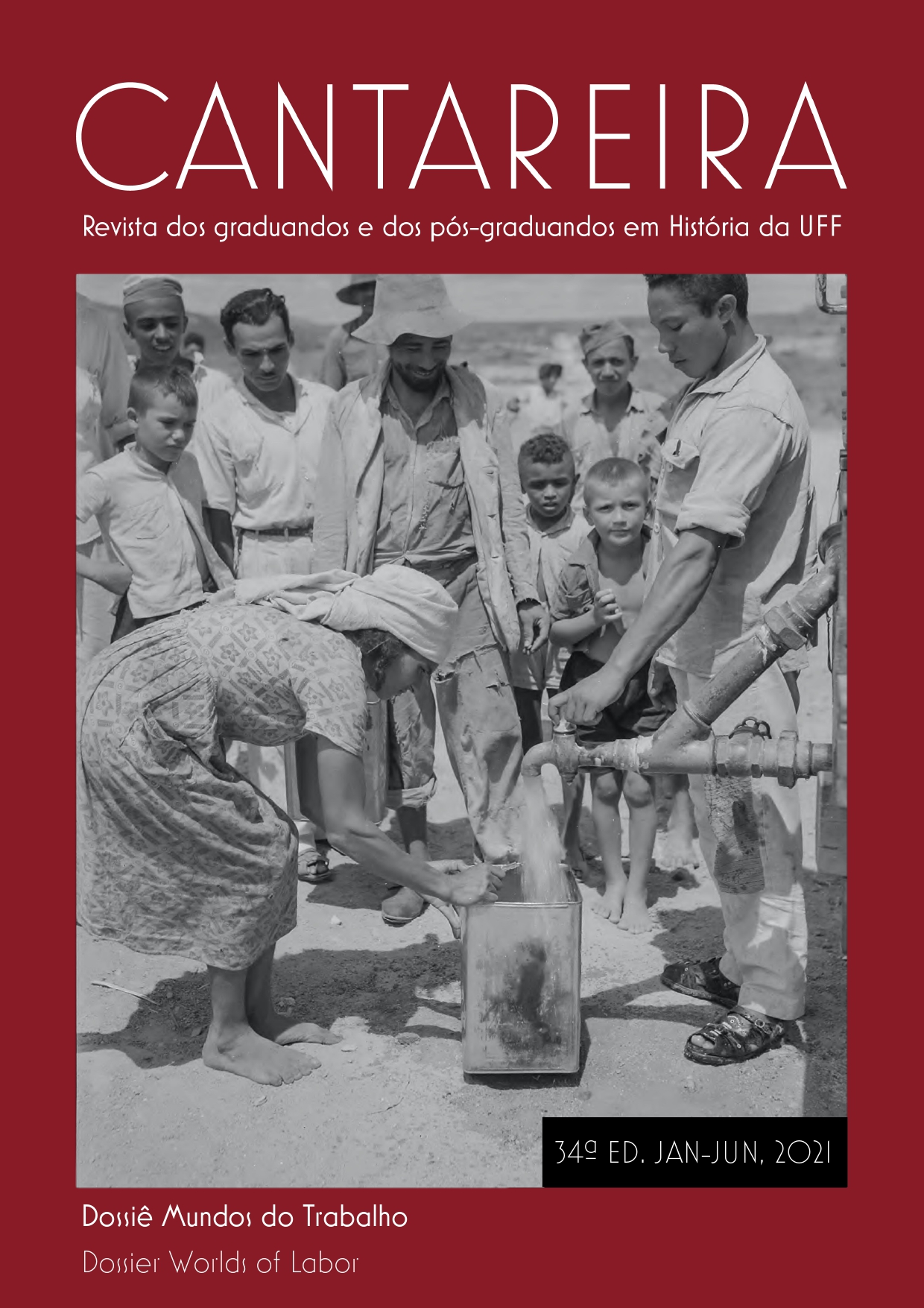Manifiestos políticos para la acción del movimiento obrero: Brasil y Colombia durante las primeras décadas del siglo XX.
Palavras-chave:
Manifiestos Políticos, Interpretación, Ideas de izquierda, lideres obreros, movimiento obrero.Resumo
Este artículo pretende analizar la constitución de los manifiestos políticos como artefactos para la interpretación de las ideas, que justificaron he hicieron posible la movilización social y la configuración de procesos de resistencia por parte de los movimientos obreros, durante las primeras décadas del siglo XX. Con este fin, se estudian las producciones de dos lideres obreros: Tomas Uribe Márquez, para el caso colombiano y Edgard Leuenroth para el caso brasilero, en el marco de una historia en perspectiva comparada. Con la intención de estructurar algunos patrones de interpretación común, este análisis se configura en torno a la forma en que los lideres comprendieron e hicieron uso de algunas ideas de izquierda a la luz de las condiciones de posibilidad que les ofrecieron los contextos de Brasil y Colombia. Como hipótesis de partida este articulo plantea que la producción de los manifiestos hizo posible la articulación sistemática de las ideas con prácticas revolucionarias y de resistencias al interior del movimiento obrero.
Downloads
Referências
• Fuentes primarias
LEUENROTH, Edgard y “Helio Negro”. O que é o Maximismo ou Bolcheviquismo. Sao Paulo: Editora Semente, 198? [1919].
URIBE M, Tomás. Rebeldía y Acción. Al proletariado colombiano. Bogotá: Editorial Minerva, 1927.
• Fuentes secundarias
AGIER, Michel. “Identidad cultural, identidad ritual: una comparación entre Brasil y Colombia”. In: MOSQUERA, Claudia et al. Afrodescendientes en las Américas: trayectorias sociales e identitarias: 150 años de la abolición de la esclavitud en Colombia. Bogotá: Universidad Nacional de Colombia- ICANH, 2002.
AUN, Khoury Yara. Edgard Leuenroth: Uma vida e um arquivo libertários. Revista Brasileira de História. Vol.17, 1997.
FRANKIN, Carlos Eduardo. Blasfemos e sonhadores: Ideologia, Utopia e Sociabilidades nas campanhas anarquistas em A Lanterna (1909-1916). Teses Maestria em História. São Paulo: USP, 2009.
HALL, Michael. Immigration and the early São Paulo working class. Jahrbuch für Geschichte Lateinamerikas Nº. 12 (1975) 393-407.
HOBSBAWM, Eric. Como mudar o mundo. Marx e o Marxismo. São Paulo: Companhia das Letras, 2012.
LOPREATO, Christina da Silva. O (des)encontró do Brasil consigo mesmo: ditos e escritos de Edgard Leuenroth. Verve, Vol.15, Pp: 201-221, 2009.
LOPREATO, Christina da Silva. O Espiritu da Revolta (A greve geral anarquista de 1917). Teses de doutorado em História. Campinas: UNICAMP, 1996.
MARAN, Sheldon. Anarquistas, imigrantes e o movimento operário brasileiro, 1890-1920. Rio de Janeiro: Paz e Terra, 1979.
MARX, Karl y ENGELS, Federico. Manifiesto del Partido Comunista. Pekín: Ediciones Lenguas Extranjeras, 1975 [1848].
TARCUS, Horacio. La biografía colectiva. Por un Diccionario de las izquierdas y los movimientos sociales latinoamericanos. Iberoamericana, Vol.: 13, nº 52, 2013.
URIBE, María Tila. Los Años Escondidos. Sueños y rebeldías en la década del Veinte. Bogotá: Cerec, 1994.
Downloads
Publicado
Edição
Seção
Licença
Autores que publicam nesta revista concordam com os seguintes termos:- Autores mantém os direitos autorais e concedem à revista o direito de primeira publicação, com o trabalho simultaneamente licenciado sob a Licença Creative Commons Attribution que permite o compartilhamento do trabalho com reconhecimento da autoria e publicação inicial nesta revista.
- Autores têm autorização para assumir contratos adicionais separadamente, para distribuição não-exclusiva da versão do trabalho publicada nesta revista (ex.: publicar em repositório institucional ou como capítulo de livro), com reconhecimento de autoria e publicação inicial nesta revista.
- Autores têm permissão e são estimulados a publicar e distribuir seu trabalho online (ex.: em repositórios institucionais ou na sua página pessoal) a qualquer ponto antes ou durante o processo editorial, já que isso pode gerar alterações produtivas, bem como aumentar o impacto e a citação do trabalho publicado (Veja O Efeito do Acesso Livre






